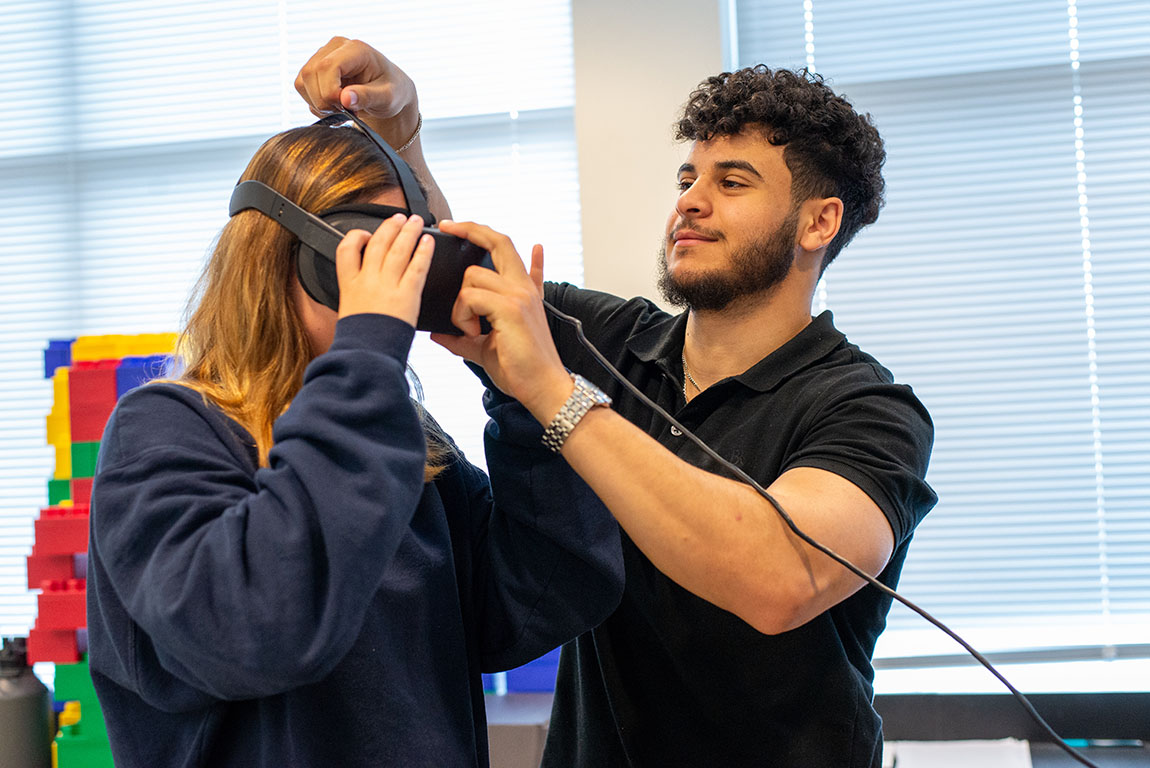Neuroscience Updates Curriculum, Adds Minor
The changes reflect the College’s investment in the department and a desire to better integrate the discipline with the liberal arts.By: Meghan Kita Friday, September 15, 2023 03:45 PM
 Students work in the lab of Dean of Academic Life and Professor of Psychology and Neuroscience Gretchen Gotthard this past summer. Photo by Lizard Foley '24
Students work in the lab of Dean of Academic Life and Professor of Psychology and Neuroscience Gretchen Gotthard this past summer. Photo by Lizard Foley '24Muhlenberg’s Department of Neuroscience has revamped its curriculum and added a minor. These changes were made possible due to the growth of the department — it now has five full-time faculty — since the introduction of the major in the fall of 2004.
Previously, students could choose from electives in a variety of disciplines and needed to take at least one neuroscience elective. Now, there is sufficient faculty expertise within the department to center all of a student's electives within neuroscience. “We now have the ability to develop an entire neuroscience-focused curriculum that honors and builds upon the three pillar disciplines of psychology, biology and philosophy and allows students to wrap up their experience in neuroscience classes taught by neuroscience professors,” says Professor of Biology and Neuroscience and Chair of Neuroscience Jordanna Sprayberry. (Majors will also be required to take cognate courses in biology, chemistry, psychology, philosophy and mathematics/computer science.)
Another new requirement for majors is the Neuroscience in Context elective. Courses that count toward this requirement are rooted in the liberal arts and consider how neuroscience informs and is informed by other disciplines. These courses often attract a mix of neuroscience majors and non-majors. Current In Context electives include Sex, Gender and the Brain and Rethinking Drugs & Drug Abuse; Sprayberry is developing a Conservation Neuroscience course to fit the new requirement as well.
“Black Lives Matter, Me Too — these social justice movements really highlighted the need for any academic discipline that values equity and social justice to start to think about itself reaching out of a silo,” Sprayberry says. “What the Neuroscience in Context requirement is doing is unwriting the idea that there’s some sort of hierarchy [between scientists and nonscientists]. All there is is a difference in background and understanding. Having perspectives on neuroscience topics from people who aren’t in the discipline can benefit neuroscience as much as neuroscience can benefit outside disciplines.”
The minor was added, Sprayberry says, because of demand and interest from students who are deeply interested in neuroscience but don’t have the space in their schedule to declare a second major in neuroscience.
The Department of Neuroscience is hosting a research lab open house for interested students Monday, September 18, from 4 to 5 p.m. in New Science and Shankweiler Rooms 117, 217, 240S and 243S and an information session on the major and minor Monday, September 18, at 5 p.m. in the New Science Lobby.
